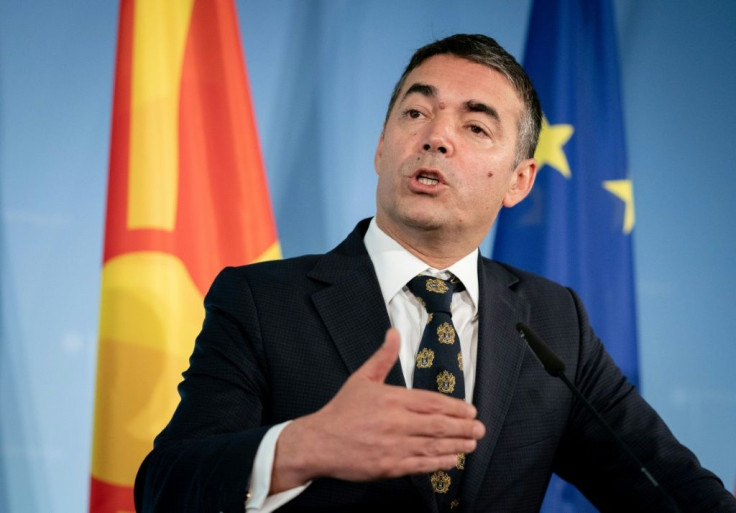Give Us Hope, Give Us Membership Talks, N Macedonia Tells EU

The EU must deliver soon on its promise to open membership talks with North Macedonia, the country's foreign minister has told AFP, warning that messages of hope were ringing hollow after three rejections.
Nikola Dimitrov insisted the country would not fall into "the trap of victimhood" despite the 28-member bloc last month postponing for a third time a decision on starting the long accession process for Skopje.
The EU's main institutions say North Macedonia has met all the reform conditions asked of it so far and should be allowed to start the formal membership procedure, but in October France used its veto at a heated Brussels summit, much to the annoyance of many other member states.
The new EU executive which took office on December 1 has been positive about North Macedonia and Albania, with Oliver Varhelyi, the new EU enlargement commissioner, said Monday he was confident the bloc would "move ahead and correct the mistake", opening accession negotiations early in 2020.
But in an interview with AFP in Brussels after meeting EU foreign ministers on Monday, Dimitrov warned that warm words were not enough.
"I think these messages are positive, I think they're needed... but I think at this stage for us for me as a foreign minister it's very difficult to go back to the people and talk about hope after hitting the wall three times -- in June 2018, June 2019 and October 2019," he said.
"I think we're at a stage where... we need to have a decision in order to give our people hope that Europe is actually serious about our European perspective."
Alongside the usual improvements to the rule of law and action against corruption, North Macedonia also changed the name of its country from Macedonia in order to solve a long-running dispute with Greece which had stymied its efforts at international integration.
France argues that the membership process as it stands is flawed and should be reformed before any new countries are allowed to embark upon it, though critics say the French government is more worried about domestic public opinion which is concerned about the idea of further enlarging the EU.
Eastern and central European countries have been particularly frustrated with the French approach -- though France is joined by the Netherlands and several others in opposing Albania's membership bid at this stage.
Dimitrov refused to criticise France, saying Paris had opened a "legitimate debate" about the accession process and North Macedonia was happy to submit to extra scrutiny, including the principle of "reversibility".
This is the idea that a country can be moved further away from membership if it backslides on reforms -- under the current system a country can be frozen but not moved backwards.
And he insisted that despite the disappointment of October, Skopje would learn from the 2008 NATO summit, where it was rejected for membership due to the name row with Greece and "we decided to go and enter a dead end street".
"We have avoided repeating that mistake," Dimitrov said. "We're focused on the goal, we want to produce in the next few weeks more reform results to improve our case and to make it as impossible as possible for any member states to say no."
North Macedonia goes to the polls in April for snap elections called after the October setback and there are fears that the disappointment will fuel nationalist parties, pushing the country away from the EU and closer to Russia.
The six western Balkan candidates -- North Macedonia and Albania, plus Bosnia, Kosovo, Montenegro and Serbia -- will meet EU leaders at a summit in Zagreb on May 6 and 7 next year, and the bloc has pledged to look again at the membership question before this.
© Copyright AFP 2024. All rights reserved.




















